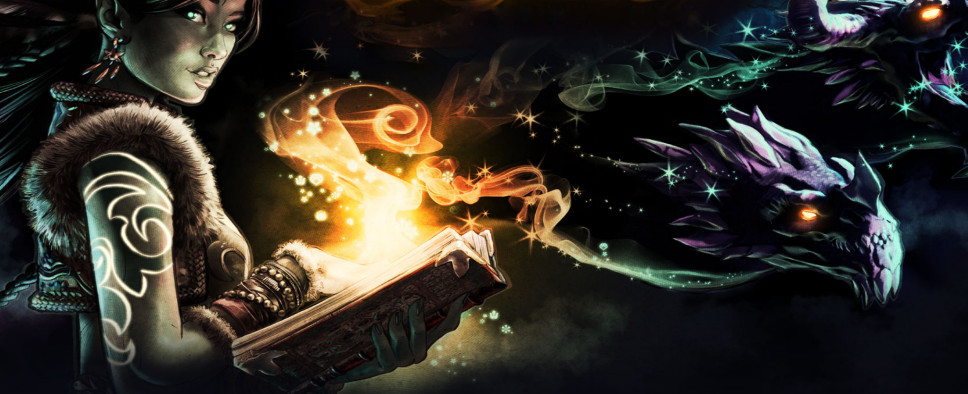Operencia: The Stolen Sun Review
-
Category: ReviewsHits: 10956

Article Index
Introduction
Zen Studios is a Hungarian team that up until recently specialized in digital pinball games. Then, back in 2019, they released Operencia: The Stolen Sun - a first-person dungeon crawler inspired by Central European mythology.
Initially, the game was released exclusively on the Epic Games Store and Xbox Game Pass, but on March 31, 2020, it made its way to Steam, GOG, PlayStation 4, and Nintendo Switch. And as a result, now that Operencia is available to a wider audience, we decided to see what it had to offer.
Story and Exploration
As mentioned above, the game is inspired by Central European mythology. And perhaps because I’m not personally familiar with that particular branch of folklore, to me the game felt more like a wild amalgamation of fables, fictionalized historical figures and even some basic fantasy tropes.
All of this comes together to create a story where the sun god gets kidnapped by a dragon and you have to save him or face certain doom. Not exactly the most inventive of premises, once you distill it to its basic elements.
This story is also paced in such a way where for a good while nothing important happens, but then near the end things kick into gear, you get exposed to multiple twists and revelations in quick succession, and then the game ends on a sequel hook.
On the one hand, this isn’t great. On the other, this is a dungeon crawler we’re talking about. A game like this doesn’t really require a story that goes past “to stop the evil wizard you need to find a magic amulet on the bottom of this large pit.”
And, while the story itself isn’t amazing, the characters you meet along the way, their clashing personalities, interactions, and conversations are actually very fun. In fact, the game’s journal/codex is written from the perspective of one of the characters, and is quite an enjoyable read.
A lot of those interactions revolve around what I can only assume are retellings of old European legends, which gives the game a distinct fairytale feel.
This is further augmented by the game’s level design. Instead of traversing a single dungeon, you’ll be exploring a mystical land and visiting a good number of inventive locations. An underwater castle, a forest where all the trees are made of copper, a crumbling castle that defies gravity. You’ll even get to climb the World Tree by walking up it sideways.
The levels themselves tend to contain numerous sub-areas, secrets, and puzzle rooms that actively reward exploration. As you get through the game, you’ll gradually unlock new tools to interact with its environments. And because you’ll be able to revisit levels at will, you’ll oftentimes face puzzles and riddles spanning multiple levels, which adds another dimension to exploration.
The puzzles themselves tend to not be particularly difficult, so if you’re not a fan of puzzle-solving, you shouldn’t get stuck too often. There was one notable exception near the end of the game where I had no idea how to progress, and even after consulting a guide, I still don’t understand the logic behind that puzzle.
That one puzzle aside, the game does a great job of keeping things fresh instead of endlessly iterating on the same few ideas. Each of the game’s levels generally has some twist to it and its puzzles oftentimes reflect that. But, while this means you won’t get sick of moving blocks in increasingly convoluted patterns, the sheer variety of Operencia’s puzzles means that some of them are significantly less creative than others.
One thing to note here, is that the game tells you how much of a level you’ve completed at any given time and how many secrets you still have to uncover. And I’m not sure I like that. It’s fun to stumble onto a secret, work something out, solve a riddle. Knowing exactly how many mysteries a level holds removes some of that excitement, in my opinion.

